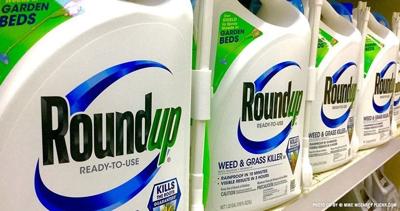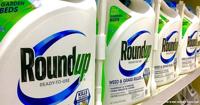
ST. LOUIS — A state appeals court has upheld a trial court's directed verdict in favor of Monsanto Company, rejecting claims from a man who alleged that exposure to Roundup caused his non-Hodgkin’s lymphoma.
The Missouri Court of Appeals Eastern District determined the plaintiffs, Mark and Karen McCostlin, failed to present sufficient expert testimony to establish specific causation — a required element of their case, according to the June 24 opinion.
The McCostlins filed suit against Monsanto in April 2023, asserting that Mark McCostlin’s long-term use of Roundup, which contains glyphosate, caused him to develop NHL. Their claims included strict liability for design defect and failure to warn, negligence, misrepresentation, violations of consumer protection statutes, and loss of consortium.
To support their case, the McCostlins presented two expert witnesses: toxicologist Dr. James Clark and clinical oncologist Dr. Barry Boyd.
Clark initially estimated that Mark McCostlin’s Roundup exposure was equivalent to 13–33 full days of spraying.
However, after Mark McCostlin testified at trial and revised some of the details from his earlier deposition, Dr. Clark recalculated the exposure to be 9.59 days. Boyd’s opinions were based on Clark’s exposure estimates.
While Boyd had previously stated in his deposition that Roundup “more than likely” caused Mark McCostlin’s cancer, his testimony at trial was less definitive.
Based on the revised exposure calculation, Boyd testified that Roundup “contributed to [Mark McCostlin’s] risk” of developing NHL but did not explicitly state that it caused the disease. The court found that testimony about increased risk, without a clear statement of causation, was insufficient under Missouri law.
At the close of the plaintiffs’ case, Monsanto moved for a directed verdict, arguing that the McCostlins had failed to make a submissible case on causation.
The trial court agreed and ruled that Boyd’s testimony did not establish a causal link between Roundup exposure and Mark McCostlin’s NHL.
The McCostlins attempted to recall Boyd to clarify his opinion, but the court denied the request, finding that he had not misspoken and had consistently discussed risk rather than causation.
On appeal, the McCostlins raised five points of error, three of which centered on the trial court’s decision to grant a directed verdict.
They argued that Boyd’s testimony should have gone to the jury, that the trial court misinterpreted the evidence in Monsanto’s favor, and that it improperly made credibility determinations.
The appeals court rejected all three arguments, finding that Boyd’s trial testimony clearly failed to establish specific causation, and that the trial court did not make credibility findings or weigh evidence improperly.
The court emphasized that in toxic tort cases like this one, plaintiffs must provide expert testimony demonstrating both general and specific causation. While Boyd testified that Roundup was a “possible risk factor,” the court stated that this did not amount to a conclusion that the exposure caused Mark McCostlin’s cancer. The judges concluded that “[a]ssurance of possibility is not of itself … sufficient to make a submissible case.”
The appeals court also rejected the McCostlins’ claim that the trial court abused its discretion by refusing to allow Boyd to be recalled. It found no evidence that Boyd had made a mistake in his testimony.
The court also upheld the trial court’s decision to sustain Monsanto’s objection during redirect examination of Clark, noting that the plaintiffs had agreed to stipulate to the 9.59 exposure days and that any additional testimony was outside the scope of redirect and the parties’ agreement.
In affirming the trial court’s judgment, the Missouri Court of Appeals concluded that the McCostlins failed to provide legally sufficient evidence on an essential element of their claim—specific causation—thus making a directed verdict appropriate.
John F. Garvey Jr. and A. Ann Saucer were representing the appellants.
Timothy J. Hasken, Saurish Appley-Bhattacharjee, Kenneth L. Marshall, James F. Bennett and Booker T. Shaw were representing the respondent.
Missouri Court of Appeals Eastern District case number: ED112532




